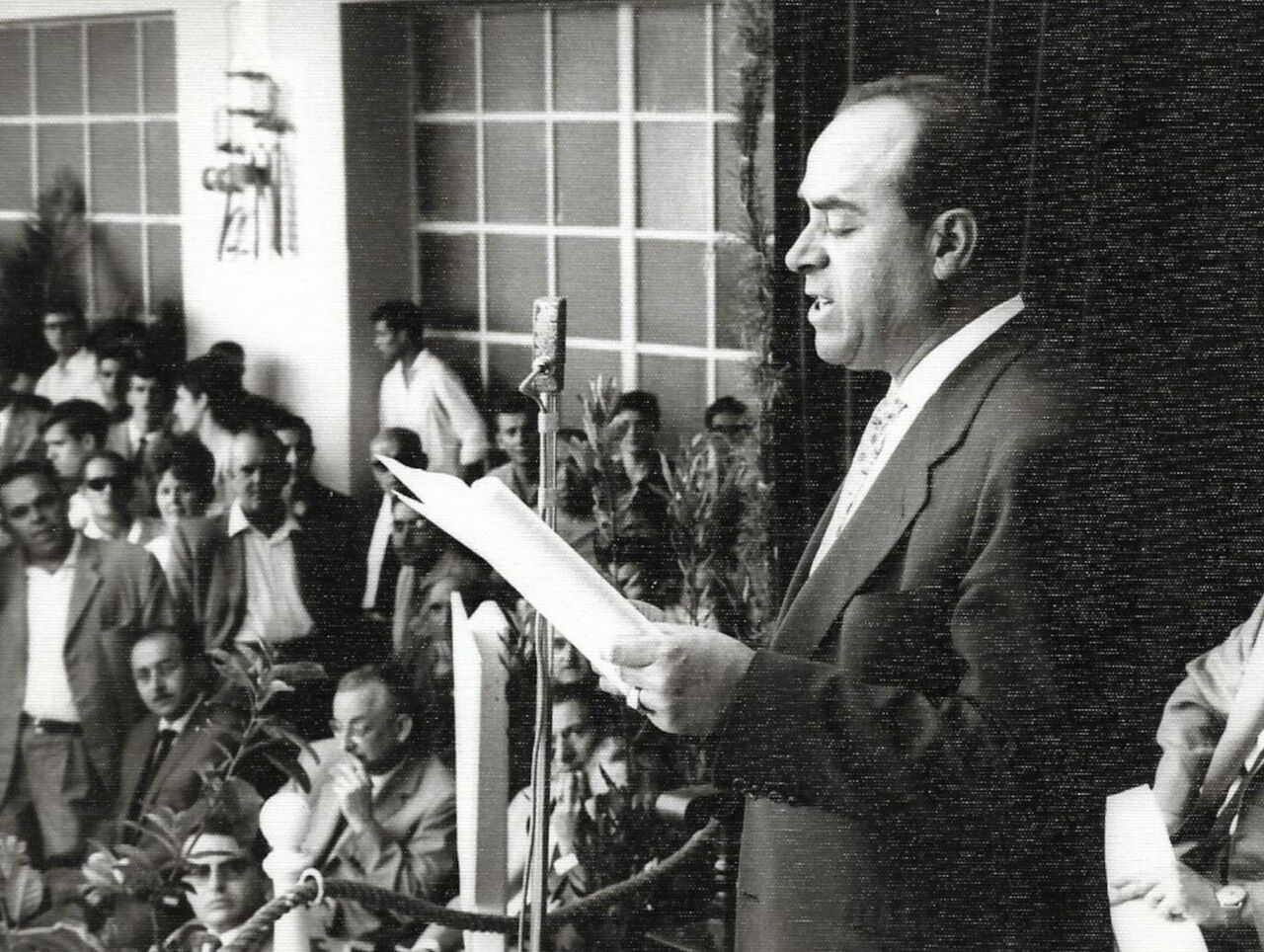21 July 2025
A spotlight on… Albert Vidal
Seven decades ago, Albert Vidal sparked a global shift in the perception of skills. A vocational advocate, a leader, and a champion of youth, his vision transformed skills development into a force for international cooperation and growth.

Fill youth with enthusiasm through special action! Convince young people’s parents, trainers, and company chiefs that a promising future is possible only through good vocational training
These are words of Francisco Albert Vidal from Spain — an early pioneer of the WorldSkills movement and one of the founders of WorldSkills. This year’s 75th anniversary celebrations would not be complete without acknowledging the pivotal role he has played on the global stage for skills.
Vidal’s impact dates back to the very first international Competition in 1950 when he was charged with helping create a skills contest for the young people of Spain and Portugal. He went on to become Secretary of the Organizing Committee for the International Vocational Training Organization, the predecessors to WorldSkills.
Over the next five decades, Vidal worked tirelessly championing skills, until his last role as President before his death in 1993. He devoted his life to helping thousands of young people thrive through skills.
WorldSkills began in post-war Europe, where there was high unemployment and a huge skill shortage across the continent. Vidal and his fellow founders recognized that the solution lay in international collaboration, youth empowerment, and practical education.
As organizer of the first Competition, Vidal had huge ambition for the organization even in those early days. He believed Competitions were a powerful platform to elevate the status of Technical and Vocational Education and Training (TVET), at a time when university degrees were considered the only route to occupational excellence.
As his daughter Paloma Albert remembers, “he saw Competitions as an important tool to highlight the value of TVET, to create opportunities for working youth, and to elevate the status of skills training.”
Vidal’s impact extended well beyond the borders of his native Spain. His charisma and passion for skills brought together educators, governments, and industry leaders. The power of his conviction helped persuade new countries to join the organization. By the late 1960s, the WorldSkills movement included a diverse group of Member countries from Europe and Asia, reflecting its growing international reach.
But, for Vidal, it always came back to the young people. In fact, in early photographs from the WorldSkills Archive, he is often pictured engaging directly with apprentices and his speeches always expressed pride and optimism for skilled young people.
In a historic farewell speech delivered by Vidal during the 1983 handover of the Secretariat from Spain to Switzerland, Vidal reflected, “We have overcome many obstacles, made great efforts, and even accepted significant moral and financial sacrifices. Yet, we must also acknowledge that, despite the challenges and limitations, we have achieved a great deal — perhaps not everything we dreamed of, but enough to be satisfied with the solid foundation we’ve laid for the benefit of working youth worldwide.”
He went on to conclude, “From the beginning, I have dedicated myself completely to this organization, driven not by obligation but by deep conviction and the highest expectations for the working youth.”
Vidal’s commitment to high standards in young people is now embodied in the Albert Vidal Award, presented to the highest scoring Competitor at a WorldSkills Competition. The most recent winners, Junwei Lu and Huixuan Xie, received the award at WorldSkills Lyon 2024 for their mastery of Industry 4.0. At the time, Lu described it as “a recognition of my personal skills and a recognition of our team and all the people who support us behind the scenes”.
Now, 75 years on, Vidal’s dream has grown to a skills community that spans the world. WorldSkills is more than a Competition. It is a global skills movement that is setting standards of excellence and guiding national and international policy.
Asked what Vidal would have thought about WorldSkills today, Paloma says, “It would have been a source of immense pride for him. He was always very proud and deeply satisfied with the international growth of the organization.”
When she reflects on the advice her father would offer to today’s Members, she says, “He would probably advise them to keep their focus on young people, on preparing them as future professionals, on the value of vocational training, and on using the Competition as a tool for social impact, learning, and exchange.”
David Hoey, CEO of WorldSkills International, agrees saying, “In this milestone year for WorldSkills, and as we are developing Vision 2035 our strategy for the next ten years, I invite all Members to be inspired by the vision of Francisco Albert Vidal.”
He adds, “Our young people face an uncertain and polarized world, and a labour market that is shifting almost daily through digitization. Just like Vidal did, we can help them meet these challenges with the same spirit of unity, cooperation, and courage. We can show them that, even 75 years on, WorldSkills is relevant, valuable, and effective – and will help them achieve a more secure and successful future.”
Learn more about Albert Vidal and WorldSkills history in the WorldSkills Archive, and read about the Albert Vidal Award and its recipients.